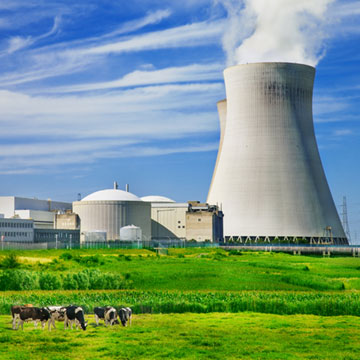 Moscow:
Moscow: Despite some acknowledgement of the necessity of nuclear power to fulfil energy needs, people will continue in the short term to view nuclear technologies with apprehension, according to an official of the Rosatom State Atomic Energy Corporation.
"In the near future, people won't feel totally safe about nuclear energy. It is because of the emotional fear. After Chernobyl happened, people started forgetting, and then Fukushima happened so the fear came back," said Alexander Nikitin, who heads the Public Council Working Group for interaction with the public and environmental organisations on radioactive waste (RAW).
He was participating in a discussion on constructive interaction with the public in decision-making when implementing nuclear projects at the 11th International Public Forum -- Dialogue on Nuclear Energy, Environment, Safety-2016.
Nikitin pointed out even experts in the nuclear energy sector believe that though not actual threats, nuclear technologies are "potential threats". "Nuclear incidents are more dangerous than industrial accidents because of the inter-generational problem. It can take generations to get rid of things that can happen."
Speaking of the Russian experience, Nikitin said the word "atom" elicits a reaction every time it is uttered. "Concepts like nuclear weapons, nuclear power plants, plutonium technologies and reprocessing are socially unacceptable to the broad public. On the other hand, we can easily talk about the medicine and science aspects with the public.
"The areas of nuclear radiation, remediation, legacy and decommissioning need the understanding of the public. Public participation is needed in RAW disposal," he elaborated.
Highlighting the Indian experience, Swapnesh Malhotra of the Department of Atomic Energy, conceded the Kudankulam Nuclear Power Plant was delayed by two years owing to protests from locals in the absence of a public outreach by the government.
Adding to the fear psychosis is the trepidation over nuclear waste, particularly spent nuclear fuel, which is highly radioactive.
"Waste is seen as an inter-generational problem and one of the lessons learnt from Germany's experience is that interaction between politics and civil society is not enough as citizens want to influence political decisions," said Daniel Hafner, of Free University Berlin, Environmental Policy Research Centre, Germany.
Incidentally, Germany's decision to phase out nuclear energy by 2021/2022 opened a window of opportunity to negotiate waste issues, observed Hafner.
"The actual cost for decommissioning plus dealing with waste is 23 billion euros which will be paid by energy companies. The state will pay additional costs. So, till 2099, overall 170 billion euros will be spent," Hafner said, adding Germans now see nuclear energy is not feasible as costs are so high.
As countries continue to wrestle with the responsibility of dealing with dangerous nuclear byproducts, Belgian researcher Gaston Meskens argued adequate time should be given to explore technical possibilities and social solutions in the management of waste instead of rushing in and giving in to the political pressure of doing something immediately.
"We should take our time to explore all technical possibilities as well as social solutions. There is time for waste because you should not give in to political pressure to start doing something now and not exploring more options. In that sense, one of the most important possibilities is that of international cooperation," said Meskens, researcher at the Centre For Ethics and Value Enquiry, Faculty of Arts and Philosophy, University of Ghent.
But people should be involved immediately, reasoned Thomas Kaiserfeld, commissioner of the Swedish National Council for Nuclear Waste. "Because if you don't, the process starts to solidify and it gets locked in," cautioned Kaiserfeld, alluding to Sweden's way.
The International Panel on Fissile Materials states that spent nuclear fuel and high-level reprocessing and plutonium wastes require well-designed storage for periods ranging from tens of thousands to a million years, to minimise releases of the contained radioactivity into the environment. Safeguards are also required to ensure that neither plutonium nor highly enriched uranium is diverted to weapons use.
There is general agreement that placing spent nuclear fuel in repositories hundreds of metres below the surface would be safer than indefinite storage of spent fuel on the surface.
In 2015, Finland became the first country to approve construction of such a store -- a deep underground repository -- after more than 30 years of efforts to find a suitable site.
# Sahana Ghosh was in Moscow at the invitation of Rosatom to cover The 11th International Public Forum-Dialogue "Nuclear Energy, Environment, Safety 2016"
 Moscow: Despite some acknowledgement of the necessity of nuclear power to fulfil energy needs, people will continue in the short term to view nuclear technologies with apprehension, according to an official of the Rosatom State Atomic Energy Corporation.
Moscow: Despite some acknowledgement of the necessity of nuclear power to fulfil energy needs, people will continue in the short term to view nuclear technologies with apprehension, according to an official of the Rosatom State Atomic Energy Corporation.